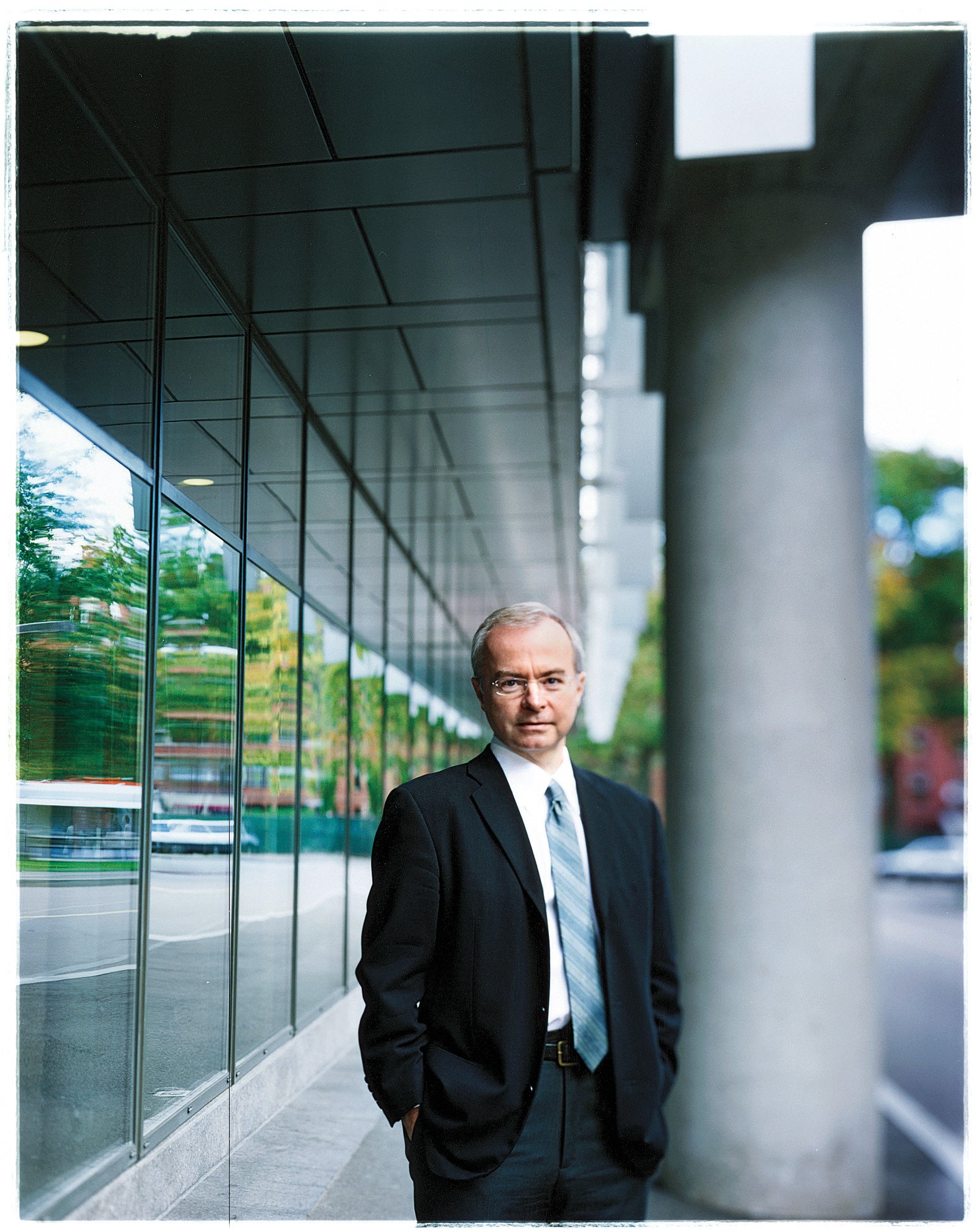International law professor David Kennedy ’80 was a conscientious objector during the Vietnam era, but in his early years teaching at Harvard Law School, he realized it was time to revisit his position on the valid use of military force.
“In the ’90s I encountered lots of liberal and progressive students who wanted to use the military in creative ways, in places like Bosnia and Darfur,” he says, “and there were lots of students with military backgrounds who confounded my early image of what the military was all about. I needed to rethink.”
The result is the provocative new book “Of War and Law” (Princeton University Press), a cautionary tale of what can go wrong when military leaders and outside observers use legal language as a substitute for independent ethical thinking.
According to Kennedy, the military’s increasing reliance on the law creates the illusion that there is an objective way to balance civilian lives and military goals. It relieves the decider of responsibility for judgment.
“I was struck by Iraq War reporting that was filled with anecdotes about soldiers overcome by remorse at having slaughtered civilians—and being counseled back to duty by their officers, their chaplains, their mental health professionals, who explained that what they had done was ‘necessary,’ ‘proportional’ and therefore just,” he writes.
 Kennedy traces the evolving relationship of law and warfare as the boundaries between war and peace have steadily grown less distinct. Traditionally, he explains, law has been used to exert outside humanitarian pressure on the military through treaties to limit the use of heinous weapons or to ensure the humane treatment of prisoners. But in recent years, it has become a pervasive tool within the military itself, governing everything from the actions of independent contractors to the enforcement of U.N. resolutions. “Warfare,” he argues, “has become a legal institution.”
Kennedy traces the evolving relationship of law and warfare as the boundaries between war and peace have steadily grown less distinct. Traditionally, he explains, law has been used to exert outside humanitarian pressure on the military through treaties to limit the use of heinous weapons or to ensure the humane treatment of prisoners. But in recent years, it has become a pervasive tool within the military itself, governing everything from the actions of independent contractors to the enforcement of U.N. resolutions. “Warfare,” he argues, “has become a legal institution.”
He observes that today’s military counsel also serve a function familiar to business lawyers. “In the same way that a good corporate lawyer might give advice on how different courts around the world would view a claim, a good military lawyer can explain how courts in other countries—including the court of public opinion—might view what we see as a legitimate use of force,” he says.
Kennedy concludes that the increased influence of law in military endeavors can have both positive and negative consequences.
“When it works well, law provides a way to talk across cultures about the use of force,” he says. “When it is used poorly, all parties feel their actions justified and no one feels it was their judgment that has caused people to die. Good legal arguments can cause people to lose their moral compass and sense of responsibility.”
When asked how he would like his book to be used, Kennedy doesn’t hesitate:
“I would like to see this book widely read in military academies and divinity schools. I would like the military students to better understand how lawyers might play a role in warfare. And for those outside the military who have humanitarian interests, I would like them to understand the limits of using law to achieve that objective.”

